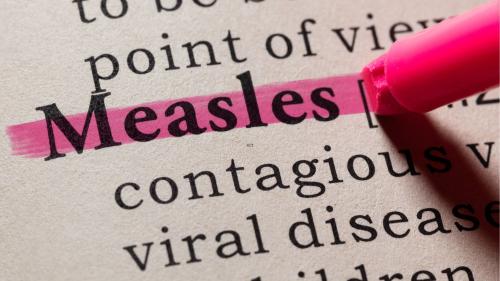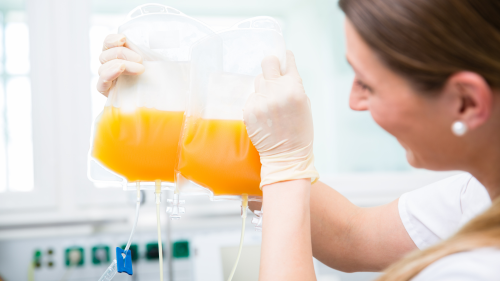
-
Understanding primary immunodeficiency (PI)

Understanding PI
The more you understand about primary immunodeficiency (PI), the better you can live with the disease or support others in your life with PI. Learn more about PI, including the various diagnoses and treatment options.
-
Living with PI
-
Addressing mental health
-
Explaining your diagnosis
- General care
- Get support
- For parents and guardians
-
Managing workplace issues
- Navigating insurance
-
Traveling safely

Living with PI
Living with primary immunodeficiency (PI) can be challenging, but you’re not alone—many people with PI lead full and active lives. With the right support and resources, you can, too.
-
Addressing mental health
-
Get involved

Get involved
Be a hero for those with PI. Change lives by promoting primary immunodeficiency (PI) awareness and taking action in your community through advocacy, donating, volunteering, or fundraising.
-
Advancing research and clinical care
-
Grants
-
IDF surveys
-
Participating in clinical trials
-
Diagnosing PI
-
Consulting immunologist
-
Clinician education

Advancing research and clinical care
Whether you’re a clinician, researcher, or an individual with primary immunodeficiency (PI), IDF has resources to help you advance the field. Get details on surveys, grants, and clinical trials.
-
Grants
The Centers for Disease Control (CDC) reports a surge in norovirus outbreaks this season and people with primary immunodeficiency (PI), also known as inborn errors of immunity (IEI), should be especially vigilant about protecting themselves against the illness.
Norovirus, sometimes known as the “stomach bug” or “stomach flu,” causes severe nausea, vomiting, diarrhea, and stomach pain. Those with PIs characterized by lowered antibody production are particularly vulnerable to norovirus.
“In our immune deficient patients, norovirus is something that they have a very difficult time getting rid of,” said Dr. Charlotte Cunningham-Rundles, professor of immunology at the Mount Sinai School of Medicine, director of the Mount Sinai Immunodeficiency Clinic, and a member of IDF’s Medical Advisory Committee.
While norovirus outbreaks can occur throughout the year, they are most common from November to April. According to the most recent data from the CDC, norovirus outbreaks have almost doubled this year compared to a similar time period last year. From August 1, 2024, to January 15, 2025, 14 states reported 1,078 norovirus outbreaks compared with 557 during the same time period the year before. The number of outbreaks reported so far this season is also above the range reported over several past seasons, from 2012-2020 and 2021-2024.
Highly contagious, norovirus spreads through close contact with others or on contaminated surfaces and food. It’s the top cause of foodborne illness in the United States. More common in the colder months, norovirus causes inflammation of the stomach (gastroenteritis), and should not be confused with the influenza virus, which causes respiratory flu. The norovirus is a group of viruses with many types, or strains, which increases a person’s chance of getting it repeatedly. Norovirus symptoms usually last one to three days, but for those with PI, GI problems can last months to years.
An NIH study found that not just one but many different types of noroviruses cause chronic symptoms in people with PI and in those with secondary immunodeficiencies. Another study showed norovirus poses a “significant risk” for those with PI, particularly CVID, leading to intestinal damage, weight loss, and malnutrition.
Claudia Pomponi, 31, diagnosed with CVID and prone to severe gastrointestinal (GI) infections, worked as a social worker in a pediatric intensive care unit and caught norovirus twice. This past summer, no longer employed in the hospital setting, she had the virus a third time. At first, she attributed the GI flare-up to stress but when adjustments to her diet didn’t help, she called her immunologist.
“It was debilitating,” said Pomponi of her illness.
Pomponi’s doctor collected a stool sample and ran a test for norovirus. Results showed she had both norovirus and an infection from Escherichia coli (E. coli) bacteria. Her doctor prescribed antibiotics and bed rest, a difficult order for Pomponi who was training for a marathon. Pomponi recovered after two weeks.
“It was definitely scary, because it’s one of those things that you wonder, ‘How am I going to get through this?’” she said.
Pomponi’s immunologist worked closely with her primary care doctor and ordered extra fluids in her immunoglobulin (Ig) replacement therapy after the illness. Pomponi ran her marathon in November.
“Lean on your medical care team, your family, and your friends. Sometimes as people with immune deficiencies, you can feel like a burden to those around you, but depending on their support is the most important thing you can do,” she said.
Cunningham-Rundles said if a person with PI has symptoms, they should seek immediate testing from their providers to determine if the problem is norovirus, or a different GI virus, bacteria, or parasite. Some of her patients cannot clear the virus and experience dehydration, weight loss, and malnutrition that requires tube feeding.
“There is no treatment or cure that rids the person of the norovirus,” said Cunningham-Rundles.
The number one way for people to protect themselves is to hand wash frequently with warm water and lots of soap for at least 20 seconds, cleaning all fingers and the backs of the hands. Hand sanitizers are not effective.
“If you are immunocompromised in any way, you are more vulnerable to this virus, whether that’s PI or you just had a BMT (bone marrow transplant), or you have leukemia or lymphoma,” she said. “So that’s basically all of our customers when you get right down to it.”
Related resources
Sign up for updates from IDF
Receive news and helpful resources to your cell phone or inbox. You can change or cancel your subscription at any time.





The Immune Deficiency Foundation improves the diagnosis, treatment, and quality of life for every person affected by primary immunodeficiency.
We foster a community that is connected, engaged, and empowered through advocacy, education, and research.
Combined Charity Campaign | CFC# 66309




